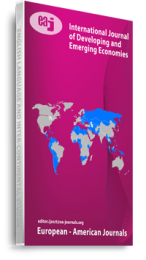This study focuses on the public acceptance of family planning programme in Nigeria. There exist scanty empirical studies on family planning programme public acceptance from the social marketing view. In order to fill the literature gap, predictors of public acceptance of family planning programme were investigated. The research design for this study was survey design and the unit of analysis comprised child-bearing Nigerians in Enugu State, Nigeria. Child-bearing Nigerians are those Nigerians that are still having children and have the tendency of giving birth to more children. Quota sampling technique was adopted and the sample size was 246 respondents which was determined using Cochran’s formula (since the study population is infinite). Data were collected through a structured questionnaire and multiple regressions were used to test the hypothesized relationship between the independent variables and the dependent variable. From the result findings, perceived susceptibility, perceived severity, perceived benefit, perceived barrier, and self-efficacy are the major predicting factors of public acceptance of family planning programme among child-bearing Nigerians. In conclusion, this study has identified major predicting factors of public acceptance of family planning programme in Nigeria. Also, it has provided an empirical support that perceived susceptibility, perceived severity, perceived barrier, perceived benefit and self-efficacy have significant and positive effect on the public acceptance of family planning programme. We recommend that health and social policy makers in Nigeria should sensitize the child-bearing parents in the rural areas about the essence of family planning programme and make available social marketers and entrepreneur that will help do an awareness campaign rigorously.
Keywords: Nigeria, Sub-Saharan Africa, family planning programme, public acceptance

